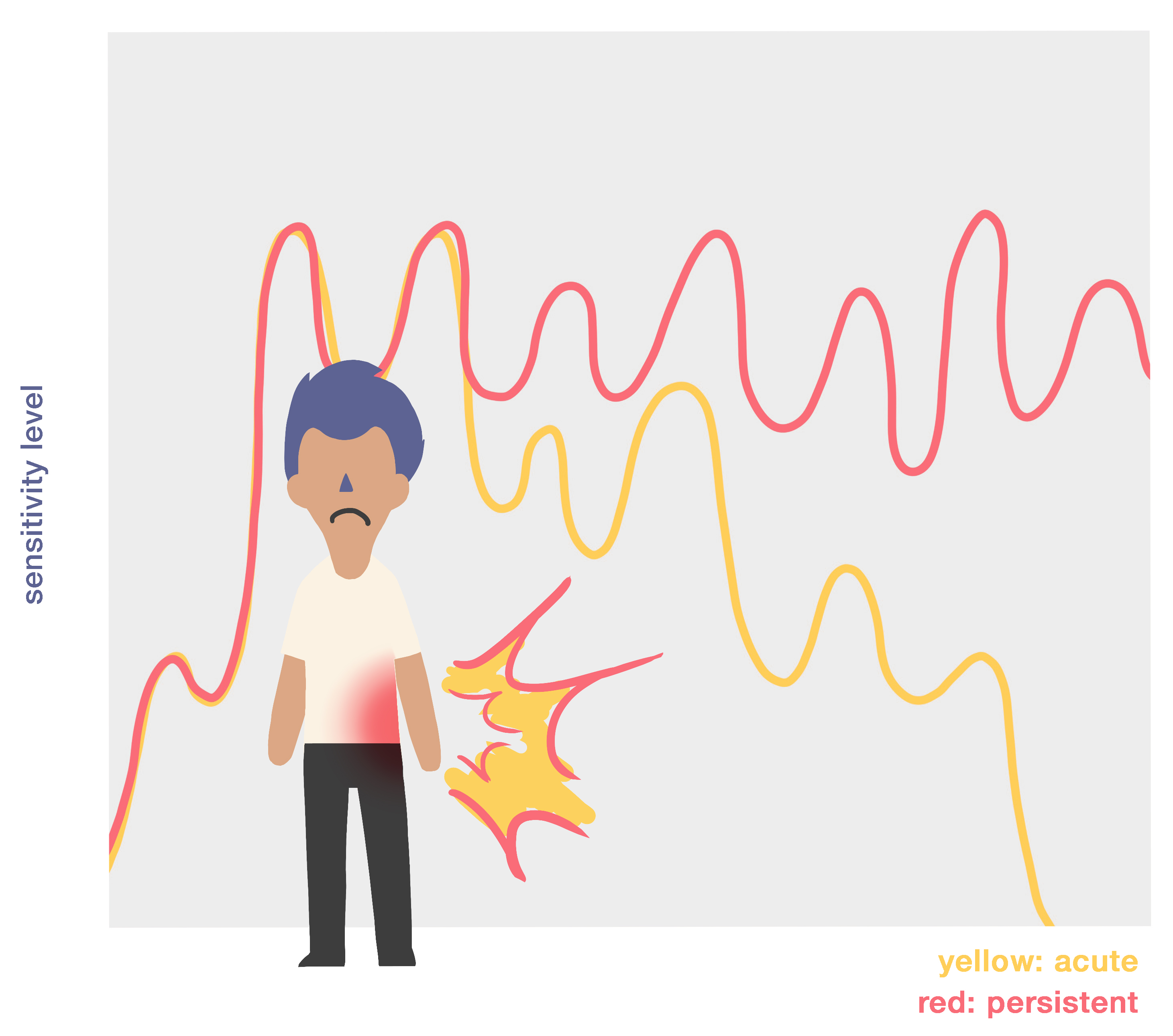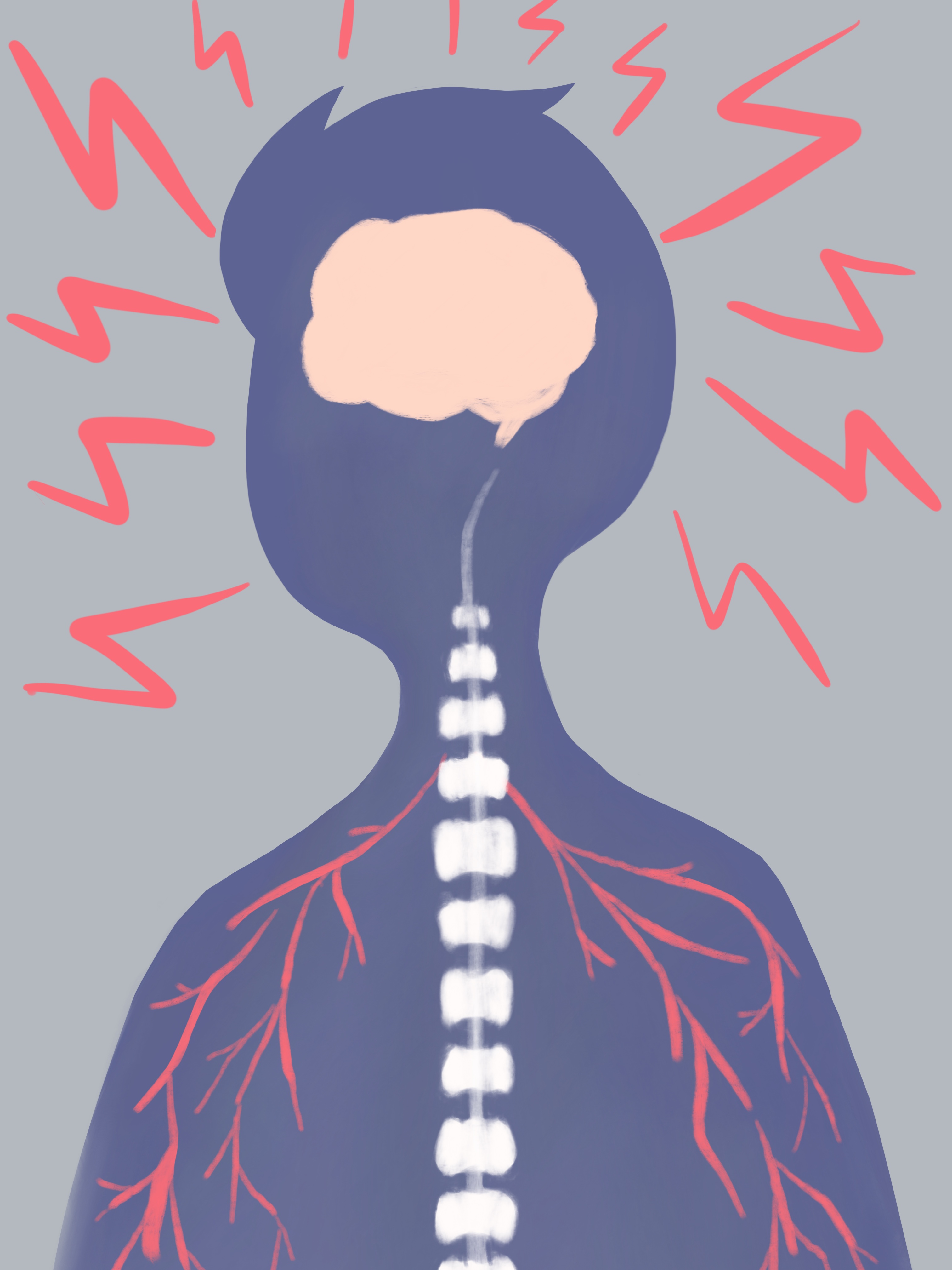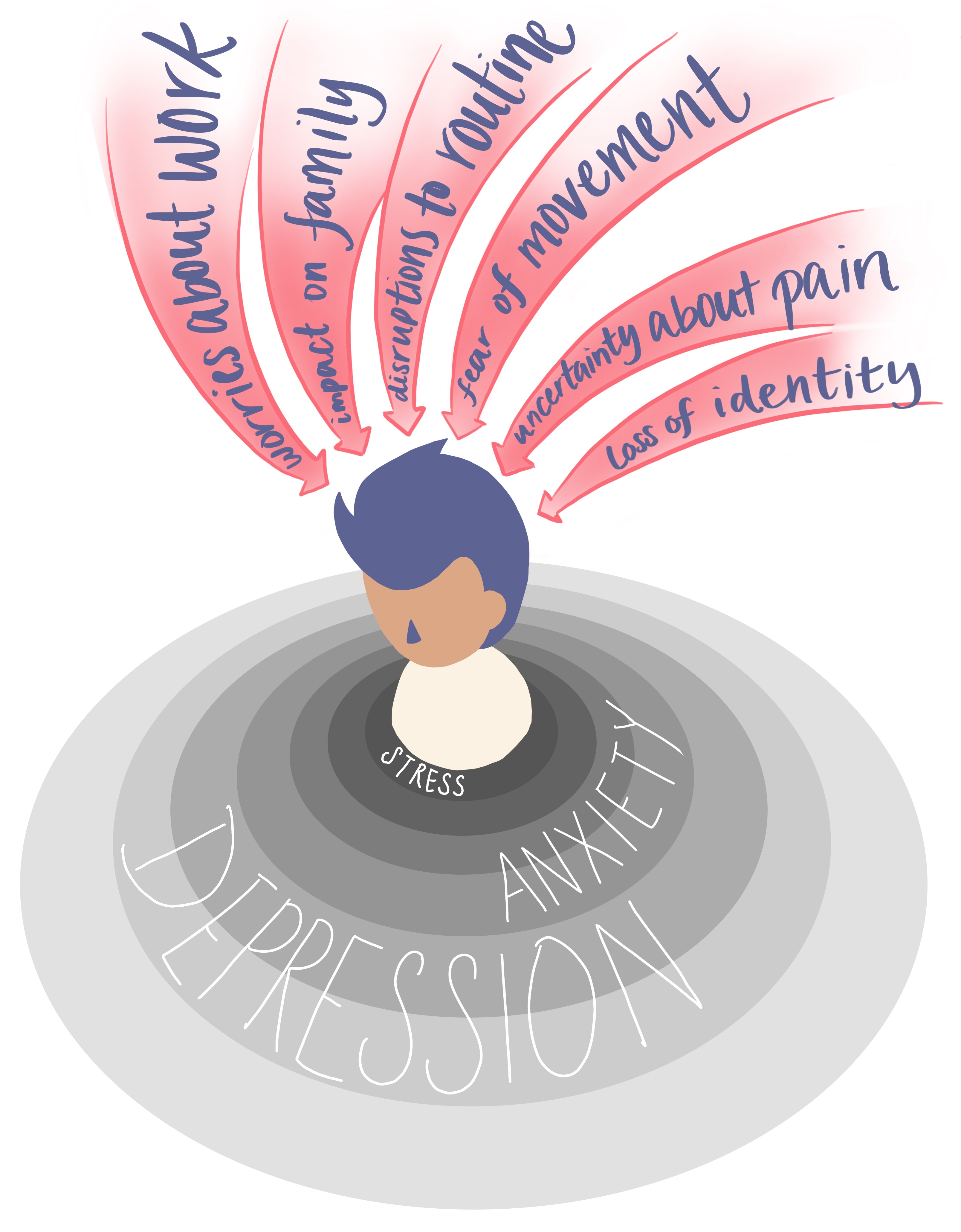Irritation of the tissues of the spine (muscles, ligaments, tendons, joints, nerves) activate specialized receptors that create electrical signals. Nerves carry these signals to the brain, where the signals are interpreted and the pain sensation is produced. There are many things that can affect this process, including the sensitivity of the nervous system, thoughts, and emotions.
The pain response

Pain is the alarm system of the body. Short term pain, called acute pain, is typically a protective response that alerts the body to real or potential damage. As the body heals, the acute pain usually resolves. However, sometimes pain lingers into persistent pain. This type of pain can continue even after the injury or illness that caused it has healed or gone away. Pain signals remain active in the nervous system for weeks, months, or years. Some people suffer persistent pain even when there is no past injury or apparent body damage.
Protective behaviors like limping, working the muscles differently, or avoiding movement altogether set in, affecting your endurance, strength and mobility.
Nervous system sensitivity

Sometimes, the pain response can become the problem. For reasons that we often don’t understand, the nervous system can be so sensitive that even minor movements, which ordinarily would create minimal if any pain, can trigger severe pain. Pain becomes less about what is happening in the body and more about changes in the nervous system. It’s like having a faulty alarm system. The alarm is meant to alert you of danger, but sometimes It goes off, even when there is no danger. Nerves have become overly sensitive—and like a faulty car alarm, may go off for no apparent reason. Pain becomes unpredictable, increasing or decreasing for many different reasons—some which can be identified, and others which cannot.
Thoughts and Emotions

Thoughts and emotions have a powerful influence on pain. Many people have worrying thoughts about pain. Some common worries are that pain is never going to get better, movement is going to damage the spine, and that work and family life are going to be impacted. Emotions such as anxiety and depression are also common in patients with pain. These negative thoughts and emotions, with the stress that accompany them, make pain worse, no matter what is happening in the body and can also affect other aspects of your function like poor sleep and digestive problems.